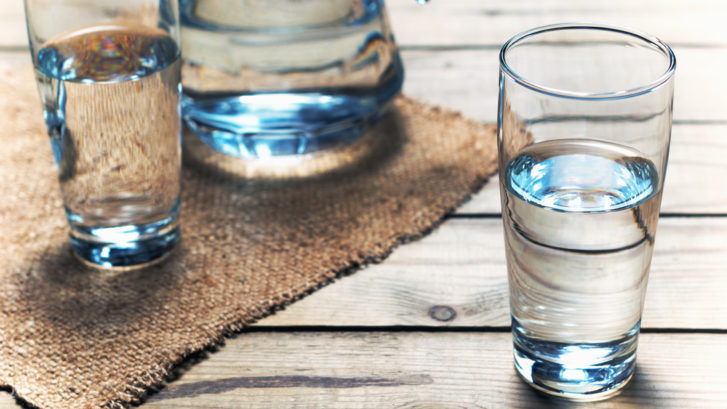How Much Water Should You Drink?
If your concierge family doctors at MD 2.0, offered you a drug that could cut your heart disease and diabetes risk, mitigate various pains including joint pain and migraines, prevent kidney stones and urinary tract infections, help you lose weight, and keep you looking younger, how much would you be willing to pay for it?
What if we told you that water could do all that and more, and only costs pennies?
Nevertheless, there are some misconceptions regarding the amount of water you should be drinking every day, and we’d like to address them here.
First, water is critical to life. Approximately 60 percent of your body weight is made up of water, and the blood is 90 percent water. Every cell in your body needs it to function. Water regulates body temperature, lubricates and cushions joints, protects your spinal cord and other sensitive tissues, and removes wastes and toxins. It also delivers oxygen throughout the body.
You may have heard the recommendation to drink eight eight-ounce glasses of water every day, whether you’re thirsty or not.
The fact is, you can drink too much water. It’s called water intoxication, and it can kill. Also known as water poisoning, hyponatremia, or hyperhydration, it results from drinking too much water in too short a time. It’s an extremely rare condition, and you’d need to drink gallons of water to reach this point, but it illustrates the point that moderation is key in nearly every health recommendation. Too much or too little of any substance is not good.
It is also true that sufficient water intake can help keep you healthier in many ways. It delivers nutrients to every cell of your body, and helps your normal respiratory and waste disposal functions operate normally. It helps keep joints lubricated, reducing friction and pain. Keeping the body well-hydrated not only thins the blood, helping the heart pump blood more easily, but helps muscles work more efficiently. It helps optimize blood flow to the brain, assisting in the production of mood-boosting neurotransmitters. And it’s key to preventing kidney stones and urinary tract infections.
Water can even help with weight loss. Studies have shown that drinking half a liter of water increases metabolism by 25 percent for up to two hours. It also helps dieters feel fuller, reducing overall calorie intake. Weight loss, of course, lowers diabetes risk. Dehydration can masquerade as other conditions, such as hunger and fatigue. It can also make your skin look dry and faded, whereas drinking water can plump up skin cells, temporarily minimizing wrinkles.
So with all these health benefits, how much water should you drink each day?
Individual water needs depend on many factors, including your health, what kinds of activities you undertake every day, your diet, and where you live. The 8/8 rule (eight eight-ounce glasses of water daily) was actually based on a misreading of one study done in the 1940s.
It turns out that any type of beverage (except sodas and alcohol) can deliver the hydration your body needs. You can also get water from the foods you eat. Watermelon and lettuce, for example, are high in water content.
The Institute of Medicine recommends that women consume a total of 91 ounces (about 2.7 liters) of water a day, and men about 125 ounces a day (3.7 liters).
If you’re engaging in vigorous activity, especially in hot weather, you should drink more than that, until you no longer feel thirsty.
Thirst, in fact, is your best guide to how much you need to drink each day. If you feel thirsty, you’re not getting enough water. Urine color is another good indication: If your urine is dark yellow, you should drink enough to turn it light yellow or even clear.
And for any questions about this or any other health issue, be sure to consult us. We’re here for you.

